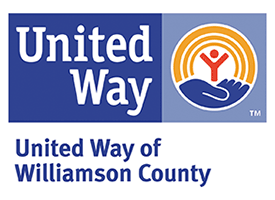How Do We Know Mentoring Works?
“The single greatest predictor of a child’s future success is the presence of a consistent, supportive adult in their life.”
Changing kids’ lives for the better, forever is Big Brothers Big Sisters’ mission. But how do we know that mentoring, and that our one-to-one mentoring model, works? How do we determine that positive changes are taking place in children’s lives and that our efforts are truly making a difference?
For over 46 years, BBBS of Central Texas has gathered and tracked a variety of data, feedback and information to evaluate the impact of our work. Measuring our effectiveness is something we take seriously. We look at a wide range of factors to ensure that the mentoring relationships we create are producing positive results for the 1,000 matches we serve each year.
Many of the kids in our program face challenges that can adversely affect their success. Sixty-seven percent of the kids we serve come from single-parent homes, 34% have an incarcerated family member, and 85% live at or below the poverty level. Many of our kids are dealing with several of these issues, and others, at once.
“The presence of these circumstances doesn’t necessarily mean a child will go down the wrong path or make poor life choices,” said Joe Strychalski, Vice President of Programs, “but these factors – among others – can significantly impact their progress and their opportunities for the future. The presence of a supportive, caring mentor can make a world of difference.”
Research shows that the longer a match lasts, the stronger the relationship between a Big and a Little becomes, the better the results of that relationship will be. Consequently, we monitor match length, strength, and outcomes.
To get things off on the right track, BBBS staff go through a very careful and deliberate process to make the best matches possible between prospective Bigs and Littles. When a match is made, the Little’s individual needs are assessed to determine areas the match can focus on improving. A tool called the Risk and Protective Inventory (RPI) helps BBBS staff assess risk areas so that goals and support strategies can be established at the beginning of each mentoring relationship.
“We do set goals with each match,” said Joe. “We monitor the length of the match and the strength of the match relationship with an annual survey completed by both the Big and the Little. Plus, we are consistently communicating with all parties involved to ensure child safety, troubleshoot any problems that might come up, and to nurture the ongoing development and progress of the relationship.”
With regard to outcomes, BBBS staff monitor impacts in three specific areas: socio-emotional development, academic performance, and avoidance of risky behaviors. Socio-emotional measures examine a Little’s relationships with family and peers, their self-confidence, and their attitudes about the future. The academic assessment looks at a Little’s grades, school attendance, and educational aspirations, including their intention to pursue post-secondary education. The behavioral survey evaluates the Little’s attitudes towards drugs, alcohol and fighting, and their avoidance of interactions with the juvenile justice system, teen pregnancy and dropping out of school.
So what does the data show? The results are overwhelmingly positive. More than 99.9% of BBBS-mentored youth avoid juvenile justice involvement; 99.9% avoid early pregnancy; and 98% stay in school, maintain or improve their grades and move on to the next grade level. In addition, BBBS youth complete high school and pursue post-secondary education at rates that are almost twice the national average for their peers.
Ninety-four percent of Littles report feeling close to their Big Brother or Sister, 97% say that their Big is very important to them, and 84% indicate that they have maintained or improved their sense of trust with their parents since being matched.
The numbers, however, are only part of the story. In addition to collecting data, we solicit and receive personal feedback from Bigs, Littles and family members regarding their experiences with our program on an ongoing basis. Bigs and Littles regularly comment on the joy they share in trying new activities, eating new foods and visiting new places. Littles say that they love having someone to talk to who isn’t part of their family, someone they can have one-to-one time with, and someone who provides a different way of looking at things. Parents say that they see improvements in their child’s attitude, in their self-confidence, and in their life goals. And Bigs, Littles, parents and caregivers are frequently pleasantly surprised by how quickly they come to feel like ‘family.’
Andrea Campaigne knows all about the difference a mentoring relationship can make. Andrea is a former a Little Sister who eventually became a Big Sister and then served on BBBS’ board of directors. “My Big Sister, Bert, and I were matched for more than 7 years,” Andrea recalled. “That was a wonderful relationship in my childhood. Bert was the first person in her family to go to college. She put herself through the University of Texas. She never discussed those things with me, but at that important time in my life, she was the right kind of role model for me. When I grew up, I became the first woman in my family to go to college as well. Having had a mentor at that age is not something I take lightly.”
When she became a Big Sister, Andrea inspired her own Little to be the first woman in her family to attend college. “There’s a beautiful continuity to our story which is so subtle,” said Andrea. “Big Brothers Big Sisters’ program works, not because it forces any one measurable outcome or result but because the outcomes just follow from the mentoring relationships themselves. Putting a caring, committed person in an at-risk child’s life leads to their positive development.”
“The depths of the relationships that form between Bigs and Littles are incredible to me,” Andrea continued. “It’s hard to describe or to show on paper. You can try to tell a new Big, ‘In 5 years you’ll be so close that your Little will probably be in your wedding.’ To them it will sound strange, but connections like that happen in this program.”
And she adds, “That’s what I love about BBBS. When you’re matched, you don’t always realize the magic that’s happening in your relationship as it’s taking place, but it does. That’s the beauty of mentorship.”









